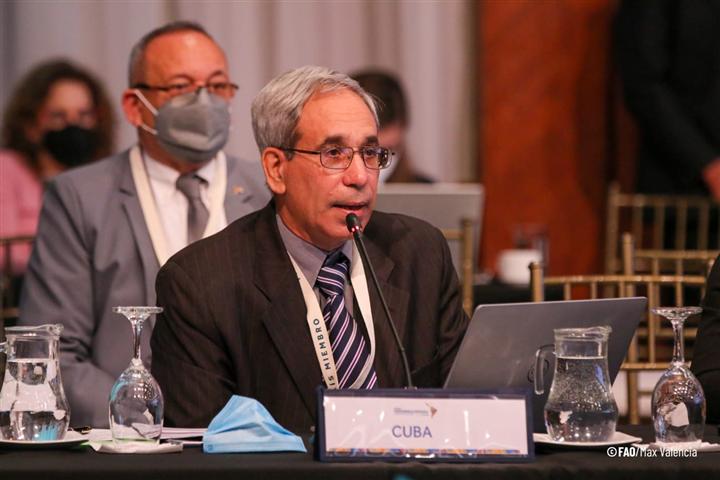The warrant was made by Carlos Fidel Martín, director of International Economic Organizations of the Ministry of Foreign Trade and Foreign Investment, during the review of the final report of the regional forum of the United Nations Organization for Food and Agriculture (FAO) that brings together 33 countries in Ecuador.
Martín proposed to the Secretariat that the Conference urge members to strengthen multilateralism, solidarity and international cooperation, mainly South-South and Triangular collaboration, for the full realization of the second Sustainable Development Goal of the United Nations 2030 Agenda, defined as zero hunger.
He added that those principles should be the “words of order” for all members of the organization.
The Cuban position had the support of those present at the meeting, who agreed with its inclusion in the Final Report, scheduled for tomorrow, during the closing of the event that began on March 28.
The Cuban official also recognized the importance of FAO’s technical assistance to projects to combat climate change and highlighted his country’s commitment to combating this phenomenon, in order to achieve sustainability and mitigate the negative effects on agroecology. .
“Initiatives to confront climate change are a practice in Cuba, with the assistance of FAO, as an implementing agency in different projects to increase resilience in rural communities, with financing from the Green Climate Fund, of great relevance for our country,” he specified.
In addition, he took advantage of the occasion to ratify the commitment with the Caribbean states to “share, not what we have left over, but what we have, despite the economic, financial and economic blockade imposed for more than 60 years by the United States on Cuba and coercive measures intensified in recent years”.
In statements to Prensa Latina at the end of his speech, Martín explained that the proposal on strengthening solidarity, cooperation and multilateralism complies with the provisions of Resolution A/RES/70/1, paragraph 30, approved by the General Assembly of the United Nations, on September 25, 2015 on the 2030 Agenda.
“This specific point refers to urging states to refrain from unilaterally enacting economic, financial, and trade measures that are incompatible with international law and the Charter of the United Nations and against economic and social development, particularly in developing countries,” precise.
ef/acl/scm









